Those Closest to the Problems are Closest to the Solutions
Parents and caregivers most impacted by how our systems work—or don’t— are the leading voices and decision-makers within The Central Coast Early Childhood Advocacy Network, a project coordinated by First 5 Monterey County.
“Those closest to the problems are also closest to the solutions,” says Nina Alcaraz, Director of Policy, Advocacy and Communications. “When we unify and magnify our individual power, we can change who holds power.”
This collaboration between parents, providers, organizational leaders and elected officials brings real results that benefit young children. The Network coordinates several different types of programs, like parent advocacy trainings and workshops that outline how a California bill becomes a law.
“Parents are fighting for a robust social safety net with access to affordable and nurturing childcare, healthcare, and social services for all families,” says Nina. “The sense of empowerment parents and caregivers get by talking to their legislators and connecting to other family leaders is leading to the policies that help children thrive.”
As an All In For Kids grantee partner, The Central Coast Early Childhood Advocacy Network has become a formidable force in parent advocacy, transforming into a genuinely parent-led organization.
“All In For Kids gave us the resources and support to bring on a full-time community organizer dedicated to building a network of parent leaders, developing parent leadership capacity, and connecting our work with other organizations around the Bay Area to share knowledge and skills,” says Nina. “This investment in community organizing has been a down payment to begin rebuilding systems for the people, by the people.”
“Wow, Look at My Mom Go!”
One of the reasons for their success is that their programming breaks down the process for caregivers in a transparent way—especially for those who may be engaging in advocacy for the first time—and tracks current legislation. The Network then connects the work to the stories and ideas from the families themselves.
“We can then say to families, hey, there’s this bill to eliminate the fees you pay for your childcare. Would you like to get behind and support this? And then we help them and coach them on how to write letters or tell their story in legislative visits,” says Allison Guevara, Lead Facilitator and Social Impact Consultant.
When kids start to see their parents speaking to legislators in front of a room of a hundred people, it leads to intergenerational healing. Parents who feel secure in themselves, are supported by their community and have the resources they need often become more resilient.
Young kids who see their parents engaged in this work become teenagers and get involved in change, taking on roles like Student Council. “Those kids say, ‘Wow, look at my mom go!’ And they’re more likely to feel like they have a voice,” says Allison.
A Cycle Worth Repeating
It’s a cycle worth repeating. When prevention drives investment and communities lead in finding and developing solutions, our children and their communities can live their best lives.
“It helps to hear other people validate your experience and say, yeah, this needs to change. And so we’re creating that kind of group that can support each other and be advocates for their families,” says Nina.
Through new connections made in the All In For Kids peer network, the Network has become more effective and strategic in its two-generational advocacy, which has deepened its impact on parents and children alike. When parents and caregivers have access to culturally appropriate services that are free and accessible, there is an outward ripple where our kids do better in school. When they get older, they’re better prepared for adulthood.
“When this happens, we’ll have the collective intelligence and creativity to solve some of our most difficult problems, like climate change and war,” says Nina. “We’re going to have this new generation of nurtured children who will transform this world to create beautiful equity and joy.”
No one person or organization can create the widespread policy change necessary, and caregivers are at the center.
The Power of Stories
“We help community leaders see the power of their stories to create change in policies and systems. We help them build confidence in their ability to publicize and share that with legislators,” says Allison, “and it makes a big impact. During the pandemic, several of these parent leaders got hired as community health workers or Promotoras in the most impacted areas, often low-income communities of color. The agencies that released funding to hire the community leaders saw their value at the time, but now what?”
Sustainable funding is critical to fostering this kind of change.
“There’s so much momentum, but we’ve heard things like, ‘Don’t abandon us!’ It’s so real,” says Allison. “And so we need to counter that sort of white supremacist, ‘hurry up, show me results right now’ kind of culture. This is long work, and we need to support it for the long haul.”

